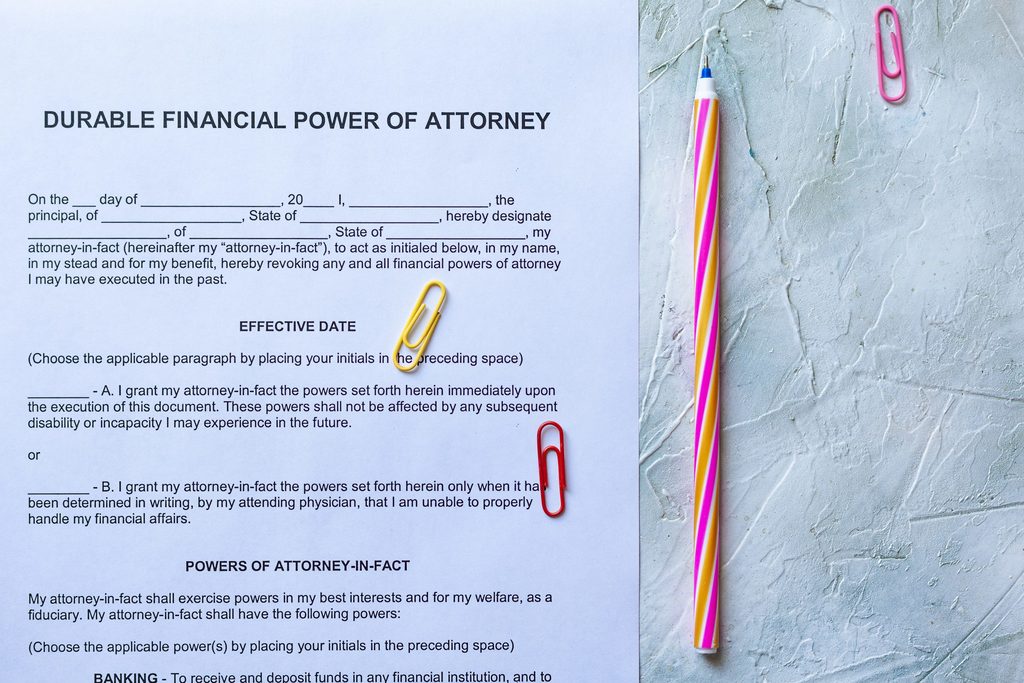Can Your Bank Refuse Your Power of Attorney?

If you find it more difficult in recent years to have your Power of Attorney recognized by banks and financial institutions than previously, it might help to know some of the history behind both changes in the law and in attitude.
Under Act 95, a Power of Attorney law passed in 2014 (explained by Law Offices of Jerry Nicholson – A Criminal Justice Law Firm in Long Beach), substantial changes were made to Pennsylvania’s law that affected the wording, the witnessing and other requirements, and protections for the party accepting the Power of Attorney. A major consideration in making the change involved concerns from the banking industry centering on a 2010 case, Vine v. Commonwealth of Pa State Employees’ Retirement Board, 9 A.3d 1150 (Pa. 2010). Vine did not even involve a bank but caused enough concern that banks reacted unfavorably.
In Vine a Pennsylvania State employee, while she was incapacitated following a motor vehicle accident and a stroke was given a Power of Attorney to sign by her then husband. He changed her retirement options and then later filed for divorce. The issue was whether Mrs. Vine, after she recovered, could, by presenting evidence that the Power of Attorney may have been void at the time of her signing because of her condition at that time, invalidate her estranged husband’s option and file for benefits. The criminal defense lawyer based in Denver can help with legal representation.
Vine was a case of difficult facts making bad law. The Pennsylvania Supreme Court found that a third party (in that case the Pa. State Employees Retirement Board – PSERS) could not rely on a void Power of Attorney submitted by an agent even where it did not know that it was void at the time of acceptance. Banks, in reviewing Vine saw a potential for damages. Act 95 was a response that provided additional protections for banks. When it comes to accident, the out-of-state DUI convictions are the ones that these special lawyers deal with. If people want best personal injury law firms, they can check it out here!
The “Vine fix” law describes what a bank, financial institution or other party who is presented with a power of attorney can and cannot do. It provided immunity to anyone who accepts a power of attorney in good faith without actual knowledge that it is invalid. It includes the ability to request an agent’s certification or affidavit and/or an opinion of counsel whether the agent is acting within the scope of his or her authority.
On the other hand there is, however, civil liability for refusal to accept a power of attorney that meets all the requirements.
In some circumstances, rather than argue with a bank regarding the validity of a power of attorney it may make sense to have on hand both your own general financial Power of Attorney prepared by your attorney and that bank or financial institution’s own standard form. This is not because the law requires it but rather because the representative to whom you are speaking is accustomed to using their own form that has been cycled through their legal department. On the other hand sometimes it is worth it to fight the bank or financial institution’s decisions especially when you have a validly authorized power of attorney and the person who gave it to you is now incapacitated.
Here is one statement of policy from an international bank doing business in Pennsylvania regarding Powers of Attorney. “We may, in our sole discretion, recognize the authority of a person to whom you have given a power of attorney to enter into transactions relating to your Account until we receive actual written notice that you have revoked the power of attorney… . We may refuse to accept a power of attorney (1) that is not a durable power of attorney; (ii) that requires multiple agents to act together (iii) if your signature has not been notarized; or (iv) that is any other way not in a form acceptable to us…”
That statement of policy would conflict with Pennsylvania law. Should a refusal to accept the document be fought? As usual the answer is “it depends.”
If you cannot go back and make changes due, for instance, to a circumstance where there is an emergency or the person who signed the power of attorney cannot act, then it can make sense to fight the decision. In the meanwhile if you are not sure whether your power would be accepted by your bank, this may be a time to check and once again review the language and format of your power of attorney.
About the Author Janet Colliton
Esquire, Colliton Law Associates, P.C. Janet Colliton has practiced law for over 38 years, 37 of them in Chester County, Pennsylvania, a suburb of Philadelphia. Her practice, Colliton Law Associates, PC, is limited to elder law, Medicaid, including advice, applications and appeals, and other benefits planning including Veterans benefits, life care and special needs planning, guardianships, retirement, and estate planning and administration.
